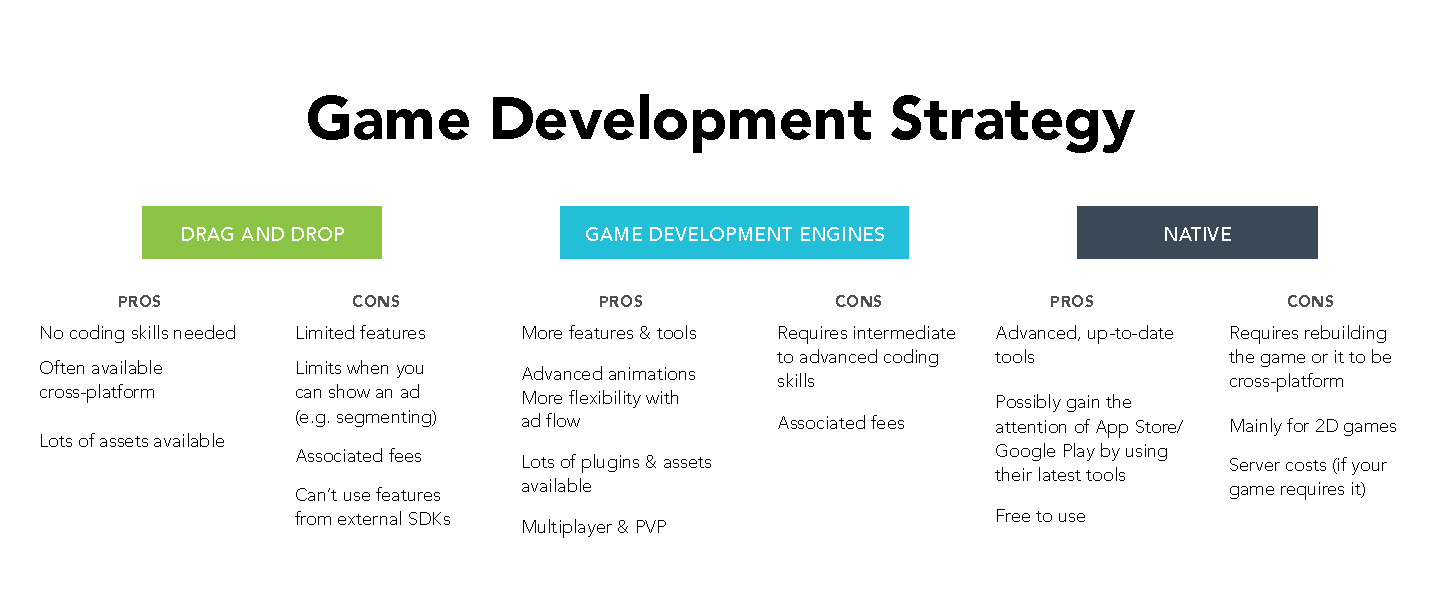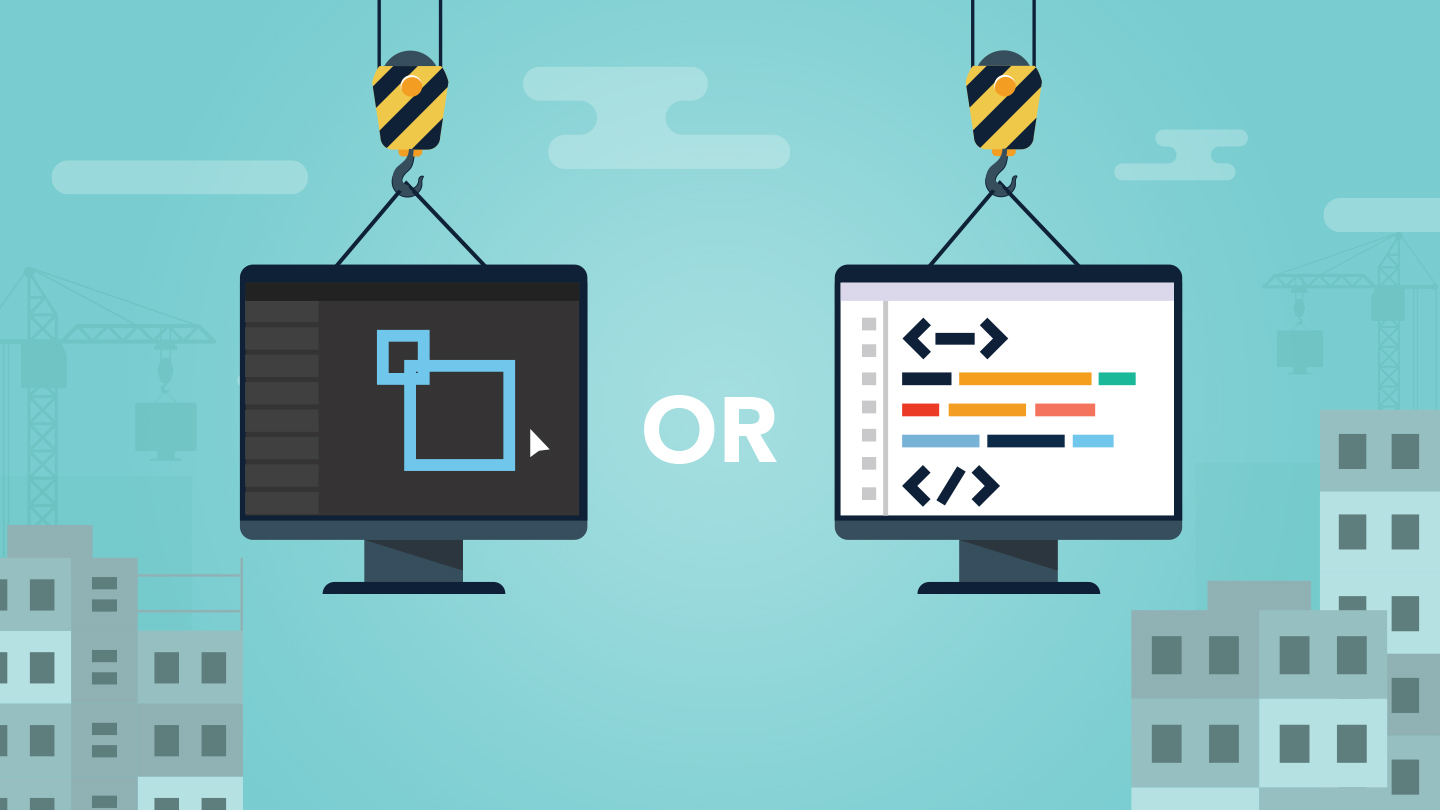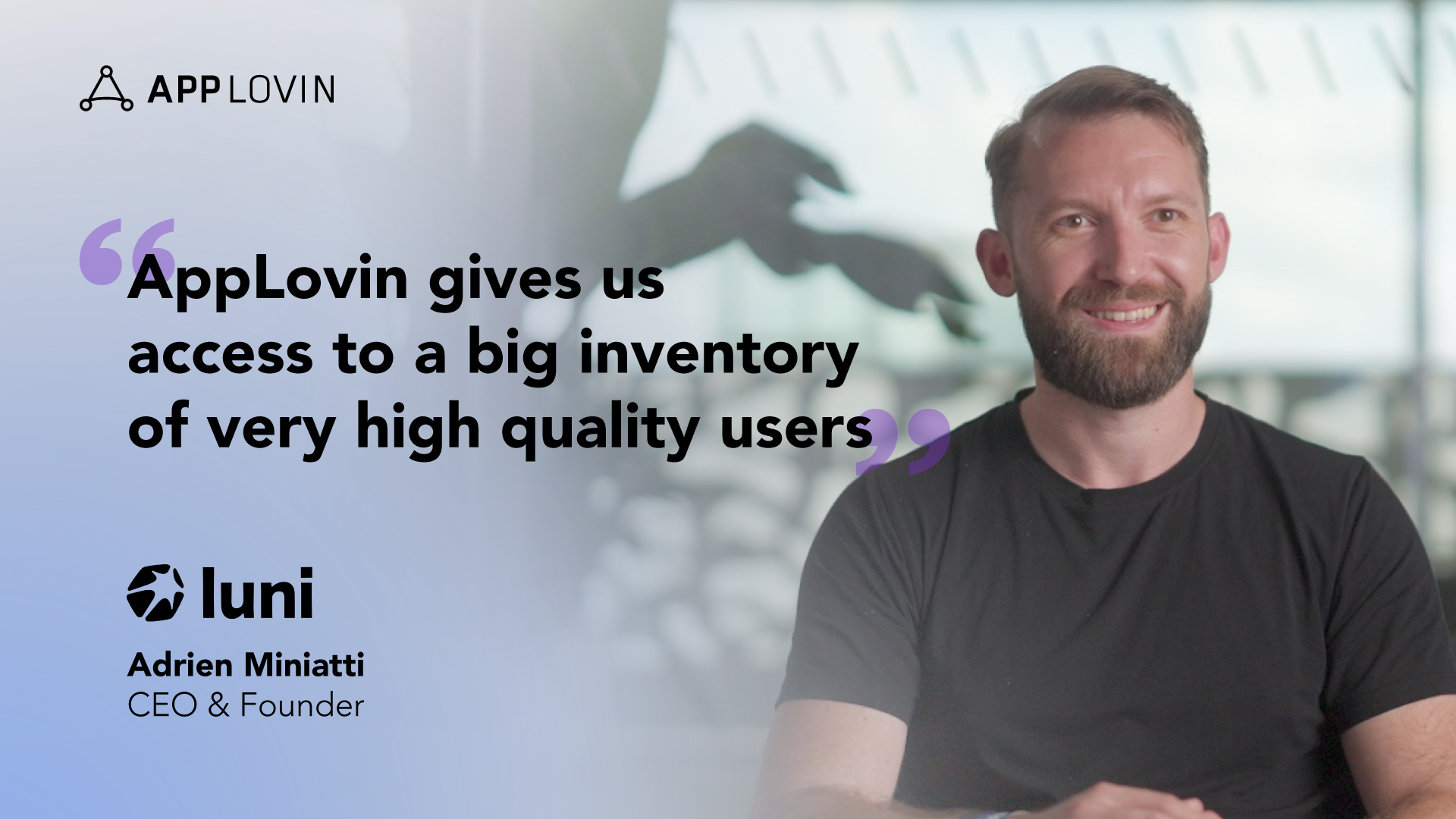Outside of my Business Development role at AppLovin, I’m an avid gamer who also enjoys building and experimenting with mobile games. I’ve been building games for years now, so I’ve got a system down for thinking through the nuts and bolts with each new one.
As soon as I start envisioning my new title, the first question I usually ask myself is “which engine I should use to build it with?” There are numerous factors that I take into consideration, such as whether the complexity of the game is within my coding ability, how much budget I’m willing to allocate to resources, and what my parameters are in terms of monetization.
Here’s a snapshot of what I think developers should take into account when choosing the right engine for building a new game.

To code or not to code?
Just how good are your coding skills? Being honest about that is the first order of business. I know for me personally, I’m far from a master coder and tend to stick to easy-to-use engines. If you rely on drag-and-drop software, you’re going to be somewhat limited with the types of games you can create and features they will offer, but you can still build amazing, robust games. (Fun fact: The original version of Color Switch was created with the drag and drop engine BuildBox — and it’s now been downloaded over 100 million times!)
If you can program beyond drag and drop software, then by all means you should look into one of the more advanced engines for creating games.
Generally speaking, if you can code, you can make your game more robust by leveraging features of the device, implementing intricate animations, and being creative with the physics in your game, not to mention that you can implement features that require a server such as multiplayer or PVP. Also, for games that are going to be more IAP focused, if you build with an engine that allows you to input your own code, you can advance your monetization efforts by utilizing user segmentation and some targeting within your user base. For example, making users who have not yet completed a purchase by Day 3 eligible for ads.
Another thing to consider when building a game is which plugins and SDKs you’re going to need. Most drag-and-drop engines don’t have the support for analytics, push notifications and other third party plugins.
Building natively — the developer’s road less traveled
Another route that some studios take is to build their game natively — the advantage to this approach lies in the more advanced native tools that are available. The benefits don’t stop with the tools, though. If, for example, you build a new game using an Apple tool like SpriteKit, you’re far more likely to get their attention and land a feature.
But in my opinion, it’s better to use an engine, because you can release the game cross-platform, whereas if you build natively, then you have to rebuild it (i.e. if you build a game using Xcode, then you have to rebuild it in Android Studio or Java.)
Remember to budget!
Keep in mind that your game is an investment in both your time and money. Have a solid figure in mind for what you’re willing to spend and then do your research on how much your various options cost. The more advanced engines have different pricing structures (monthly fees/one-time fees). For the most part, building natively doesn’t cost anything unless you use additional plug-ins, third party services, or utilize a server.
You also want to think about graphics and animations. These days there are a ton of resources where you can buy assets such sprite kits, 3D models, animation packs, GUIs and backgrounds, but if you want original art, then either you need to generate it yourself or hire someone to design it for you.
Factor in monetization
Lastly, it’s important that you plan your ad flow from the beginning. Nowadays, most drag-and-drop engines allow you to implement all the major ad types, such as rewarded video, banners, and interstitial ads, but you’re still pretty limited on when you can show the ad. An example of an advanced integration would be to offer a rewarded video ad when the user runs out of currency, or segmenting users as I mentioned before.
I deeply enjoy building mobile games — it works my creative and critical thinking skills like nothing else, and it helps me stay on top of the many interesting challenges mobile game developers face. But no matter what your level of experience as a developer, it’s always important to take the following things into consideration when choosing an engine to build with: your coding abilities with respect to features you envision and what engines support those features; working within an established budget; and ensuring that whatever you build with supports your desired ad flow.









